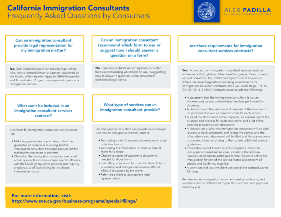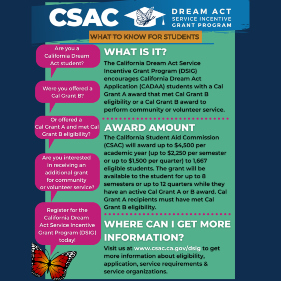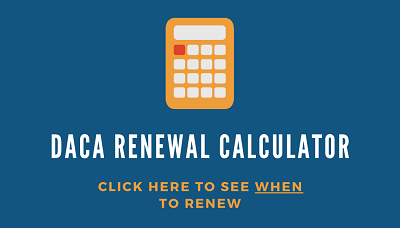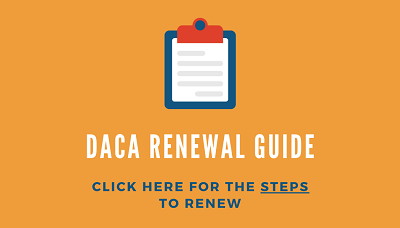
The Dream Resource Center (DRC), located in the Ross L. Handy Campus Center, aims to create a supportive and inclusive environment for undocumented, AB 540, DACAmented students and those from mixed-status families. The DRC was established in January 2021 and is staffed by an UndocuLiaison who supports students by connecting them with resources, services, and opportunities.
The DRC's mission is to increase undocumented students' access to higher education and completion. We are committed to helping students thrive and achieve their educational goals, regardless of their immigration status!
El Dream Resource Center (DRC) es un espacio donde los estudiantes indocumentados, AB 540, beneficiarios de DACA y aquellos de familias de estatus mixto pueden acceder a apoyo, recursos y oportunidades regulares e individualizados para lograr sus objetivos educativos y prosperar independientemente de su estatus migratorio.
Servicios DRC
- Consultas individuales (no académicas)
- Asesoramiento académico
- Servicios legales gratuitos de inmigración
- Apoyo financiero (asistencia para la solicitud de California Dream Act, accesa ciertas subvenciones, búsqueda de oportunidades de becas)
- Talleres/presentaciones espedificas para las necesidades de estos estudiantes
- Excursiones educativas
- Refrigerios, suministros y materiales de prueba gratuitos
- Cita virtual vía Zoom
- UndocuAlly formación para empleados
Información del Contacto
Ubicación del DRC: Campus Center (CC), sala 127
Comuníquese con el DRC
(626) 857-4048
drc@citruscollege.edu
@citrusdreamcenter
Office Hours
Monday through Thursday from 9 a.m. to 3 p.m.
Friday by appointment
Defining and Coming Out as Undocumented
Who is included in
the term undocumented? It broadly includes all immigrants residing in the U.S. without legal status for whom any of the following are true:
- entered the country without presenting themselves for inspection at an official checkpoint
- entered the country with legal status but overstayed their visit
- has or previously had Deferred Action for Childhood Arrivals (DACA)
- is still in the process of legalizing their immigration status
Note: International students (F-1 student visa) please
contact the International Student Center for questions or assistance.
Coming Out as Undocumented: Telling someone you are undocumented can be emotional, cathartic, or downright terrifying — these are stories of several people who chose to and why. Check out
these other Immigrants Rising stories of #UndocuHustle, heartbreak, and humor from brilliant undocumented storytellers.
Student Data Protection
Per federal and state laws,
Citrus College will not disclose student information for immigration enforcement purposes without a court order or judicial warrant, unless authorized by the student
(see FERPA statement) or required by law. Citrus College is open to all students who meet the minimum requirements for admission regardless of immigration status. Students can be confident that the information students provide us or submit on their admission and financial aid applications will be kept private and confidential and will not put them or their families at risk. Additionally, Citrus College has developed a protocol and guide to assist staff in responding to any immigration enforcement activities. For additional information, questions or concerns, please email drc@citruscollege.edu
Assistance, Advocacy, Support
The DRC currently provides these services:
- one-on-one consultations (non-academic)
- academic counseling
- free immigration legal services
- workshops/presentations specific to these students' needs
- events to connect students and build community
- educational field trips
- free snacks, supplies, testing materials
- virtual appointments via Zoom
- UndocuAlly training for employees
The DRC is inside the Campus Center (CC), room 127. View a map to find your way around campus to locate us.
Non-Academic Appointments
Students can meet one-on-one with the UndocuLiaison in person or virtually for individualized guidance and assistance related to their status, including:
- California Nonresident Tuition Exemption (AB 540) information/filing assistance
- navigating college and on-campus support resources
- community resource referrals and free immigration legal services
- applying and getting started at Citrus College
- financial resources (for example, California Dream Act Application assistance, accessing certain grants, and finding scholarship opportunities)
- other questions/inquiries related to their status
Please contact the UndocuLiaison by emailing
yayvaraceves@citruscollege.edu or calling (626) 914-8546 to make an appointment.
Academic Appointments
Our DRC academic counselor is sensitive to the unique needs and challenges our undocumented students face in pursuing a college education and is knowledgeable of the resources available to help them succeed academically and personally. Undocumented students can meet with the DRC academic counselor in person, via Zoom, or telephone to receive counseling and advisement support.
30 Minute Appointment
- I need a one or two-semester student education plan.
- I need to make changes to my student education plan.
- I need help registering for classes.
- I am a new student, and I need some guidance.
- I need information about transferring.
- I need help with my university transfer application.
- I have questions about college programs/services.
Click here to schedule a 30 minute appointment with the DRC academic counselor.
45 Minute Appointment
- I need a student education plan for my entire time here.
- I need a student education plan for financial aid appeal.
- I want to review unsatisfactory grades.
- I want to know my status for graduation.
Click here to schedule a 45-minute appointment with the DRC academic counselor.
Not a current Citrus College student? Please contact the DRC by emailing
drc@citruscollege.edu or calling (626) 857-4048 to make an appointment.
Ver la versión en Español del video en YouTube
Immigrant Legal Defense (ILD) is a nonprofit agency that provides FREE immigration legal services to Citrus College students, faculty, and staff. By making an appointment with one of ILD's attorneys, they can help with the following:
- legal consultations to screen for immigration relief
- initial/renewal DACA applications*
- family-based petitions
- applications for lawful permanent resident status (green card)
- U.S. citizenship/naturalization applications*
- answering any immigration-related questions
*Financial assistance is available to pay the USCIS filing fees.
Make an Appointment
Schedule your appointment via the
findyourally.com website. Please search for "Citrus College" under LOCATION and select the "Virtual (i.e., phone or Zoom)" option.
Download our guide to know what to expect and prepare for your first appointment.
Meeting Space
You can reserve a meeting room with a computer with Zoom access, a printer, and a telephone for your virtual appointment by contacting the DRC by emailing
drc@citruscollege.edu or calling (626) 857-4048.
Resources

ILRC Red Cards: The
Immigrant Legal Resource Center (ILRC) Red Cards (available in various languages) educate immigrants on their rights and help assert them in many situations, such as when ICE agents go to a home. Students can also find printed Red Cards at the DRC.

Avoid Immigration Scams: Immigration laws and procedures are complicated.
Review the ILRC Avoiding Fraud page to help protect yourself from scams. Also, a PDF brochure of frequently asked questions is available for download for those seeking nonlegal services from immigration consultants (who are not licensed lawyers). Both community resources are available in English and Spanish.

The
California Dream Act Service Incentive Grant program (DSIG) encourages California Dream Act students with a Cal Grant B award (or a Cal Grant A award that met Cal Grant B eligibility) to perform community or volunteer service.
The California Student Aid Commission (CSAC) awards students who complete the required service hours up to
$4,500 per academic year.
The DRC can provide information about the CSAC program and assist eligible students with the application process and service organization search by appointment with the UndocuLiaison.
This grant is intended to provide direct aid to assist undocumented students experiencing hardship or financial need preventing them from completing their courses at Citrus College. It is awarded on a first-come, first-served basis up to once per academic year. To access this resource, students must meet with the UndocuLiaison.
An Undocu Recognition Celebration will be held in May to celebrate undocumented students who are transferring, graduating, or completing a certificate at Citrus College.
Participating students will receive a stole as part of the immigrant community and as a representation of their accomplishments. Beginning in the spring semester, undocumented students will receive an invitation to attend the celebration with their family, friends, and/or allies.
California Residency, AB 540, California Dream Act
If you have not done so already, there are a couple of important steps as an undocumented student you will need to complete if you are eligible:
- establish California residency (for tuition purposes)
or submit the Nonresident Tuition Exemption (commonly known as the AB 540 affidavit)
- apply for the California Dream Act
For questions/assistance with these steps, please contact the Dream Resource Center by emailing
drc@citruscollege.edu or calling (626) 914-8546 to make an appointment.
Every student's California residency is determined by the college and is based on the information they submitted on their application for admission.
Note: California residency for tuition purposes is different from U.S. citizenship/permanent resident status.
Students will receive an email from admissions and records notifying them of their residency status. The college will determine whether a student is a California resident or nonresident (for tuition purposes). Students who are classified as nonresidents:
- pay nonresident tuition
- are not eligible for state-based financial aid
- cannot participate in programs for California residents
How to Petition for Reclassification
DACA recipients can establish California residency and change their classification if they have lived in the state for one year plus one day before the semester begins and can demonstrate they intend to remain a California resident.
To petition for reclassification as a DACA recipient at Citrus College, students must submit the Residency Reclassification Petition form with the required proof.
Undocumented students who do not have DACA may be eligible to apply for the Nonresident Tuition Exemption (AB 540 affidavit). Please refer to the next tab below.
Contact Us, Additional Resources
DACA is a federal executive memorandum (not law) that provides undocumented youth who came to the U.S. as children (before their 16th birthday) and who meet specific criteria:
- temporary relief from deportation (deferred action)
- work authorization
DACA is subject to renewal every two years and does
not:
- grant lawful status
- provide a path to citizenship
- grant eligibility for federal student aid
Where does DACA currently stand?
Since it was rescinded in 2017, numerous lawsuits have followed, challenging the DACA program's termination and the legality of the program itself. The future of DACA remains uncertain, so it is important to keep in mind that there could be changes to the program and to be up to date.
You can find the most recent updates and information via the following DACA-related websites:

Important: It is recommended that applicants consult an immigration attorney or United States Department of Justice (DOJ) accredited representative before applying. This searchable
online directory can help students find free and low-cost legal help:
https://www.immigrationlawhelp.org
Renewal Applicants
Per USCIS, if you currently have DACA, it has expired or was terminated, you are eligible to request a renewal if you meet the initial 2012 guidelines and:
- did not depart the U.S. on or after August 12, 2012 without advance parole
- have continuously resided in the U.S. since you submitted your most recent DACA request that was approved
- have not been convicted of a felony, significant misdemeanor, three or more misdemeanors, and do not otherwise pose a threat to national security or public safety


Source:
USCIS
